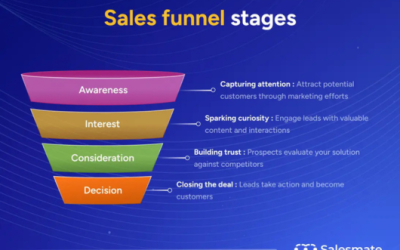As business owners we are always considering software, whether it is new or just an upgrade. We find something that we believe will help our business grow, so we jump on board. We get excited. We get everyone else in our business excited. Shortly after the implementation, the excitement wears off and we fall back in the old patterns of doing things. Now we have a new investment in software that we are not using.
This is a common story around CRM implementations. Businesses want to attract and nurture qualified prospects and they want their conversion of the sale to be quicker and more efficient. They find a CRM that will help them achieve this goal, but instead of helping them, it works against them for the following reasons:
- The CRM is not aligned with their business goals
- Leadership does not use the CRM
- Leadership expects everyone else to use it, but does not follow their own advice
- People take shortcuts
- Team members do not see the point of the new system, so they revert back to the old way
- It creates Follow Up Fatigue
There are many other reasons why a CRM implementation fails. However, there are three practices that we can put into place to make a CRM implementation successful.
Be committed from the top down
As business owners and executive leaders, it can be easy to implement the CRM and instruct your team how to use it. Instruction is good, but when you do not “practice what you preach”, your team will not see the value in the new software, processes, and expectations. You will have a hard time getting them to adopt your CRM and processes if your words and actions say, “do as I say, not as I do.”
Leadership that is committed to the CRM implementation is committed to all of it. Meaning, you are not just committed to providing a CRM platform to help your team in prospecting and nurturing customers, you are also committed to following the processes yourself. Show them how you will use the CRM, because it may be different than how they use it. Sales and marketing teams catch onto a vision when they see leadership taking the same steps. The point is, if you want your team to adopt your CRM, then you need to be committed and adopt it fully too.
Learn to use the most important features first
Picture in your mind someone who is learning to fly. Do they jump into the cockpit and take the plane for a ride? We hope not. Instead, they take steps to learn how to fly. They start with the most important processes and features first. Otherwise, they will become overwhelmed and quit learning.
A CRM implementation is no different. Instead of tackling every feature in the CRM, start with the most important features that will help you achieve your business goals. Otherwise, you may become overwhelmed and stop using it.
Common features that are important include:
- Automation for both tasks and customer/prospect relations
- Real-time reporting and dashboards
- Dynamic mail lists that are up to date every time you add a new contact
- Team calendar showing project deadlines
The list goes on, but to have a successful CRM implementation, choose the top 3 features that are important to achieve your business goals. Focus on those features as a team. Once you and your team are comfortable and it becomes second nature, begin to include other CRM features. Changing behavior patterns takes time, so you need to build on the implementation instead of jumping into every feature full throttle.
Hire an experienced CRM implementation consultant
The number one reason that business owners do not hire consultants is because they believe they do not need someone to tell them how to run their business. However, there are benefits to hiring a consultant to help you through the process.
- A consultant is not in your business day in and day out, so they can see a broader picture of how the CRM can help specific to your needs.
- A consultant can help your business see which features are the most important to begin the CRM implementation.
- A consultant can configure the CRM implementation based on your business goals.
- A consultant can train you and your team to use the CRM properly, so you are all on the same page and ready to go on day one.
Conclusion
Investing in a CRM is necessary for most businesses, but it can be costly if it is not implemented correctly. We want your CRM implementation to be successful. If you have questions or would like to see how a CRM can help your business goals, contact us for a free demo of X2CRM at 301-332-0613 or fill out the form.





